Confederate Truths: Documents of the Confederate & Neo-Confederate Tradition from 1787 to the Present.
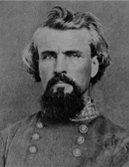

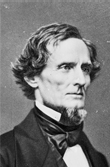
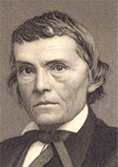

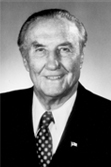
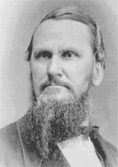
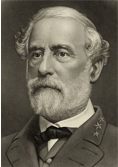
"Confederate Veteran" publishes an account by a white Southerner who visits Cuba and is horrified by the greater degree of racial equality found there.
Confederate Veteran publishes an account by a white Southerner who visits Cuba and is horrified by the greater degree of racial equality found there.
Confederate Veteran
, Vol. 16 No. 6, June 1908, pp. 294-5, with an editorial introduction. The Confederate Veteran was the official publication of the United Confederate Veterans, United Daughters of the Confederacy, Confederated Southern Memorial Association, and the Sons of Confederate Veterans.
ANGUISH OF RECONSTRUCTION IN CUBA.
A letter published on March 24, 1908, in regard to reconstruction in Cuba will elicit the sympathy of all Southerners. It is given as "Observations of Lloyd Damron," of a prominent insurance company, in the Rome (Ga.) Tribune, he having recently spent some time in Havana:
"That the spirit of the Kuklux, who redeemed the Southern States from the shadow of Africa forty years ago, is not personified by clans in Cuba to-day is due perhaps to temperamental differences of the Anglo-Saxon and Latin nations, but mainly to the unwelcome intervention of the United States government.
"The beautiful Prado, once the joy of Havana, harbors now an incongruous assembly of people. Once the dons and donas were out almost nightly, circling about the Prado with the music of Spanish and Cuban bands, enlivening the paseo on gala occasions. The great parades followed the course of the Prado or boulevard, which is the main street of the city, for hours in the day and into the morning hours. Recently, however, the Prado has lost much of its charm to the traveler or native who reveled in its joys during the reign of the haughty Spaniard. Then the don and the dona and the caballero and the senorita walked hand and hand in the affectionate way of these romantic people and shied coquettish glances at each other, oblivious to the invasion and conquest of the beautiful parks and boulevards that overshadowed them. The negro, whom the Spanish grandees trained to tread the narrow calles, or streets, now jostles along the quaintly narrow sidewalks, while perhaps the proud dona keeps to the middle of the street to avoid measuring rights with the negro, to whom the amended Constitution of the United States guarantees a form of social equality.
"The ways of the races in Cuba are reminiscent of local reconstruction incidents, even up to the characteristic inclination of the overindulged black man to shunt into the street white women whom he meets on the narrow sidewalks.
"You people in the Southern States,' said a native Cuban to me the other day, 'understand the proper control of the negro, and I am told that you exercise a very good control in spite of this Constitution of yours which we do not yet understand perfectly. We have the United States to thank for our present troubles with the negro.'
'This is pretty generally the feeling in Cuba when one is asked to fix a responsibility for the precipitate change in social conditions which has driven the Spaniard and the equally proud Cuban, through whose veins courses the noblest Castilian and Caucasian blood, from the beautiful Prado, parks, and boulevards, adorned more than ever by the hand of the American government of intervention, back to the Malecon, the boulevard by the sea, which the negro has not yet captured in his sweeping movement for recognition in Cuba.
"There is some danger even of electing a negro for Vice President in Cuba at the next election, which takes place in October. Whatever the result of the election, riots will be imminent and possibly revolution. The mailed fist of Uncle Sam is the restraining influence in the island to-day without which the races would clash. President Roosevelt is talking of withdrawing many of our troops in the island, and it is freely predicted that this course will be followed by bloodshed. The negroes declare openly that they will not be ruled by white men. Since the Spanish inhabitants of the island are debarred from voting, the negroes may very easily in votes outnumber the Cuban whites. In the meeting of their Sociedad Secreta, or secret society, which includes most of the negroes on the island, they lay their plans secretly and with great cunning, using the native African tongue, which they still cling to in some measure in their junta. The whites, of course, revolt at any suggestion of Ethiopian domination, and they resent the growing tendency toward social equality, daily evidences of which are furnished in the commingling of the lower classes. The haughty Spaniard and the proud Cuban of to-day are sensitive to the intrusion of the negro; but they cannot offer protest when files of the darker race usurp the benches along the Prado or when the negroes are interspersed among their daughters in audiences of theaters or in refreshment places, for they are overawed by the United States and its Constitution. On the surface all is quiet, remarkably so; but I was impressed that a land constantly in warfare for generations and centuries, which shows few visible traces of warfare over its broad, sunny expanses might even now be resting on a volcanic race problem the extent of whose eruption may convince the United States government of the difficulties which beset the Constitution as it follows the flag.
"It is true that the business men in the higher classes are largely in favor of the annexation of the island to the United States. This is due to the fact that business interests have been much more prosperous since the United States has interfered to put down the perennial riot and rebellion of the island. Even the Spaniard, who has been accused of sinking the Maine, is equally desirous with the Cuban of coming, under the stars and stripes if he has money invested in Cuban business interests. ‘Cuba Libre,' typified by the flag which floats over the Cuban business houses to-day, doubtless will fade finally into a territorial form of government administered by this nation; for the substantial business interests of Cuba now demand such course, and the dominant political party of this country doubtless will lend a sympathetic ear. One of the problems to be worked out, however, is the proper adjustment of social conditions in the island under the uncompromising restrictions of the fourteenth amendment of our Constitution. The magnitude of this undertaking may be appreciated when it is understood that the thousand's of negroes in Cuba, who still cling largely to their native gibberish, were freed from slavery only thirty years ago."
In connection with the foregoing, a delightful picture of home life is given. Mr. Nicolas Altuzarra, looking to closer relations with the United States, purchased a residence in Atlanta, Ga., when his children were small, and kept his family in Atlanta, Ga., for several years, until the English language became quite familiar to them.
This residence of Mr. Altuzarra, on the Paseo Marti, Havana, is an excellent example of the best Spanish-American domestic architecture. The ornate, two-story facade, with double balconies, is more than fifty feet in height, giving the ample ceiling space for both stories so necessary in a warm climate. Within is a large court, ornamented by flowers; and leading from it to the second floor, which is the residence proper, there is a wide marble staircase. The large door at the right of the front is a porte-cochere, and within are quarters for the carriage and horses as well as for the servants. The house is much larger than it appears, containing fourteen rooms, besides servants' quarters.
The notable difference between it and the houses most of us are accustomed to is in that its yard is inside. This gives great privacy along with the abundant ventilation which that climate demands. In the rooms which open on the patio within there are wide windows and doors, and a balcony runs around these courts on the second floor, which is the resort of the family by day or night whenever it is pleasanter outdoors than in. The front balcony of this house commands a fine view of the Paseo, or Prado, as it is called. In a sense in which it is not even known to us such a house is its owner's castle. The great door (which has a small door within it) is kept closed and barred and in charge of a porter day and night. The few outside windows are protected by iron gratings. But there are no more hospitable homes than these of the better class in Spanish America.